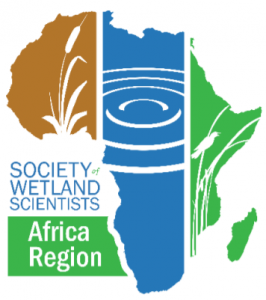 On the 19th of October 2021, the International Chapter hosted its first-ever chapter meeting for the African Region. The meeting provided an opportunity to inform members of the structure and function of the chapter, discuss regional champions and networking opportunities, highlight the value of the society's webinars, discuss member support and annual chapter meetings, and highlight the need to vote for the incoming chair (co-chair for the region). As part of the meeting, the International Chapter sponsored a virtual wetland rehabilitation training session. The training was presented by the Centre for Wetland Research and Training (WetRest) and included three components.
On the 19th of October 2021, the International Chapter hosted its first-ever chapter meeting for the African Region. The meeting provided an opportunity to inform members of the structure and function of the chapter, discuss regional champions and networking opportunities, highlight the value of the society's webinars, discuss member support and annual chapter meetings, and highlight the need to vote for the incoming chair (co-chair for the region). As part of the meeting, the International Chapter sponsored a virtual wetland rehabilitation training session. The training was presented by the Centre for Wetland Research and Training (WetRest) and included three components.
The first component of the training focused on “Wetland Rehabilitation Concepts and Theory.” The following topics were discussed:
- Causes of wetland degradation;
- Gully rehabilitation and erosion control;
- Catchment management and conservation; and
- Wetland rehabilitation with vegetation, earth diversions, and soft options.
The second component of the training focused on a series of “Wetland Rehabilitant Case Studies.” The case studies were used to illustrate the application options and effects of several intervention types and materials. The interventions covered aspects of changes in local site conditions and catchment hydrology, planning and implementation considerations, as well as some material selection perceptions.
The final component of the training focused on “Wetland Rehabilitation Monitoring and Evaluation.” The following content was covered:
- The need for wetland rehabilitation monitoring and evaluation;
- Levels of monitoring and evaluation;
- Monitoring and evaluation dynamics, objectives, and indicators;
- Rehabilitation measures;
- Monitoring and evaluation period and frequency, variables and methods;
- Tier approach to monitoring and evaluation;
- Fixpoint photography;
- Monitoring the rehabilitation structure; and
- Social dynamics: Landowners, managers, and the public.
The meeting was well supported. A total of 36 members were able to join. The majority of the participants were from South Africa. However, five members from Nigeria also participated, as well as members from Ireland and the United States.
